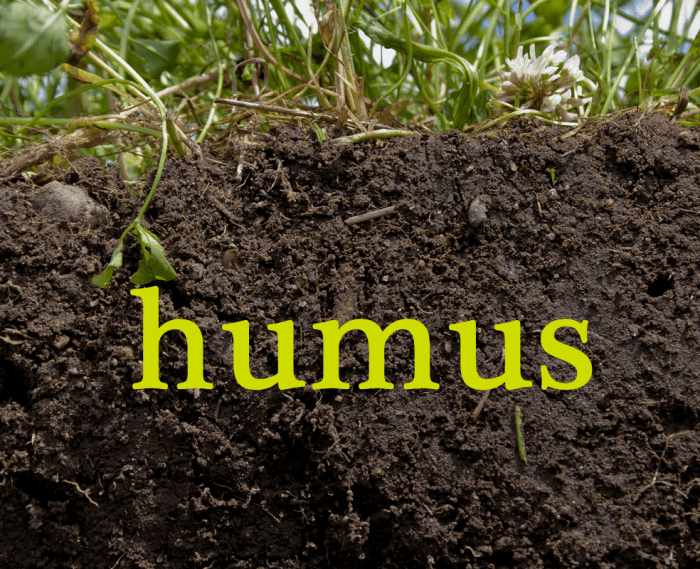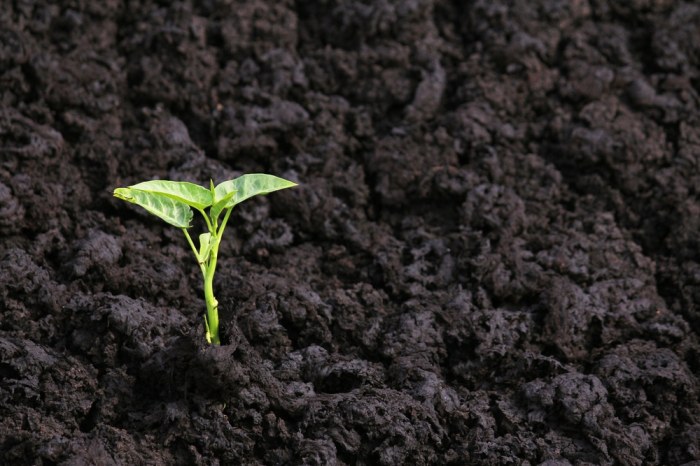Organic component of soil crossword clue – Embarking on an exploration of the organic component of soil, this discourse unravels the significance of this element within the crossword clue, delving into its multifaceted nature and shedding light on its critical role in soil health.
Organic matter, a vital constituent of soil, encompasses a diverse array of substances derived from living organisms. Its presence exerts a profound influence on soil fertility, structure, and water retention capacity, rendering it indispensable for thriving plant life.
Organic Components of Soil

The organic components of soil are materials derived from living organisms that contribute to the physical, chemical, and biological properties of soil. They play a crucial role in maintaining soil fertility, structure, and overall health.
Organic matter, a vital component of soil, is a complex mixture of organic compounds originating from plant, animal, and microbial sources. It influences soil structure, water-holding capacity, nutrient availability, and microbial activity.
Types of Organic Components
- Plant residues:Undecomposed plant material, including leaves, stems, roots, and fruits, contribute to soil organic matter. They are a major source of carbon and energy for soil microorganisms.
- Animal residues:Organic matter from animal sources, such as manure, carcasses, and animal byproducts, adds nitrogen, phosphorus, and other nutrients to the soil.
- Microbial biomass:Living microorganisms, including bacteria, fungi, and protozoa, contribute to soil organic matter through their metabolic activities and the decomposition of organic residues.
- Humus:A stable, dark-colored material formed by the decomposition of organic matter. It has a high cation exchange capacity and improves soil structure.
Sources of Organic Components
Organic components are primarily derived from:
- Plant litter: Dead leaves, twigs, and other plant material fall to the soil surface and decompose.
- Root exudates: Plants release organic compounds from their roots, which contribute to soil organic matter.
- Animal residues: Manure, carcasses, and other animal waste materials add organic matter to the soil.
- Crop residues: Unharvested plant material, such as stalks and stubble, contribute to soil organic matter.
- Compost: Decomposed organic material from various sources, such as food scraps, yard waste, and manure, can be added to soil to increase organic matter content.
Decomposition of Organic Components
Organic matter undergoes decomposition by soil microorganisms, which break down complex organic compounds into simpler forms. The rate of decomposition depends on factors such as:
- Temperature:Decomposition is faster at higher temperatures.
- Moisture:Optimal moisture levels facilitate microbial activity and decomposition.
- pH:Neutral to slightly acidic pH ranges support microbial activity.
- Oxygen availability:Aerobic conditions favor rapid decomposition, while anaerobic conditions slow it down.
- Type of organic matter:The chemical composition of organic matter influences its decomposition rate.
Soil Organic Matter Management, Organic component of soil crossword clue
Maintaining high levels of soil organic matter is crucial for soil health. Practices that promote organic matter accumulation include:
- Cover cropping:Growing cover crops helps add organic matter to the soil.
- Crop rotation:Diversifying crop species over time increases the variety of organic matter sources.
- No-till farming:Avoiding soil disturbance preserves organic matter.
- Compost application:Adding compost to the soil directly supplements organic matter content.
- Manure management:Properly managing manure applications can enhance soil organic matter.
Essential Questionnaire: Organic Component Of Soil Crossword Clue
What is the primary source of organic matter in soil?
Plant and animal residues, including decaying leaves, roots, and dead organisms.
How does organic matter contribute to soil fertility?
It provides essential nutrients for plant growth, improves soil structure, and enhances water retention capacity.
What factors influence the rate of organic matter decomposition in soil?
Temperature, moisture, oxygen availability, and the presence of decomposing organisms.

